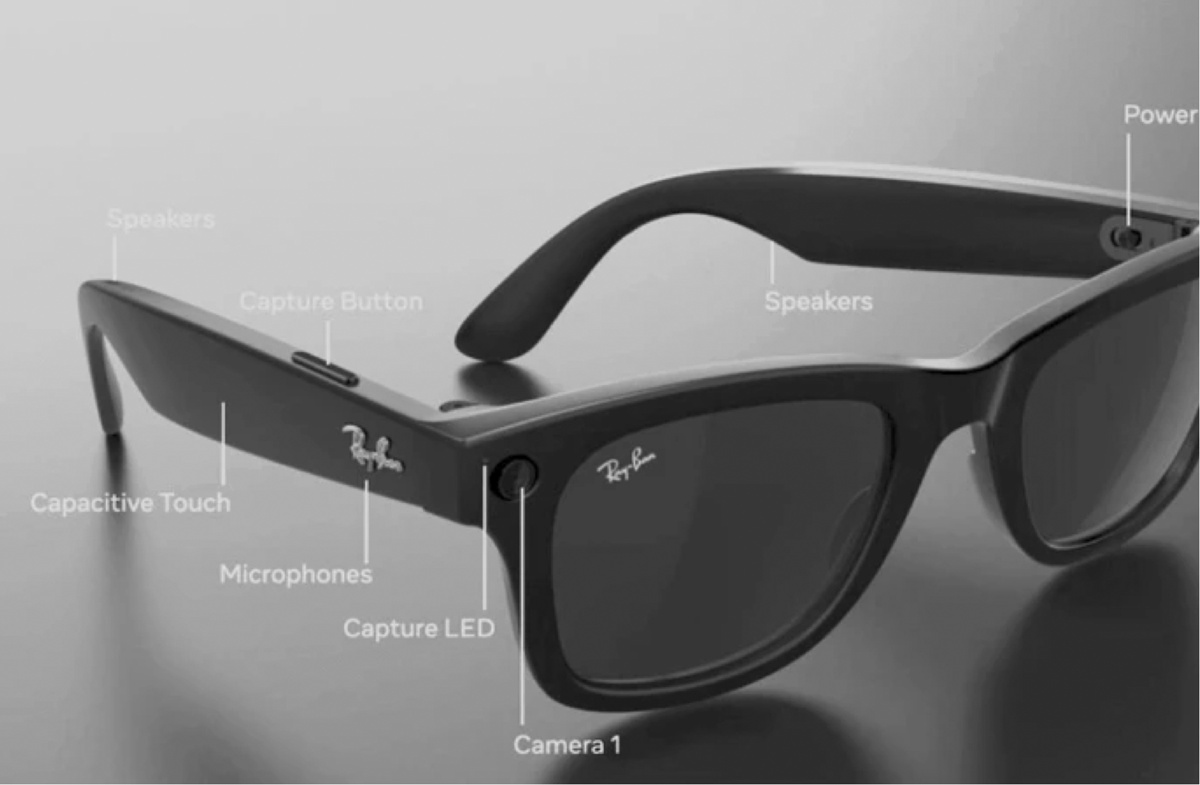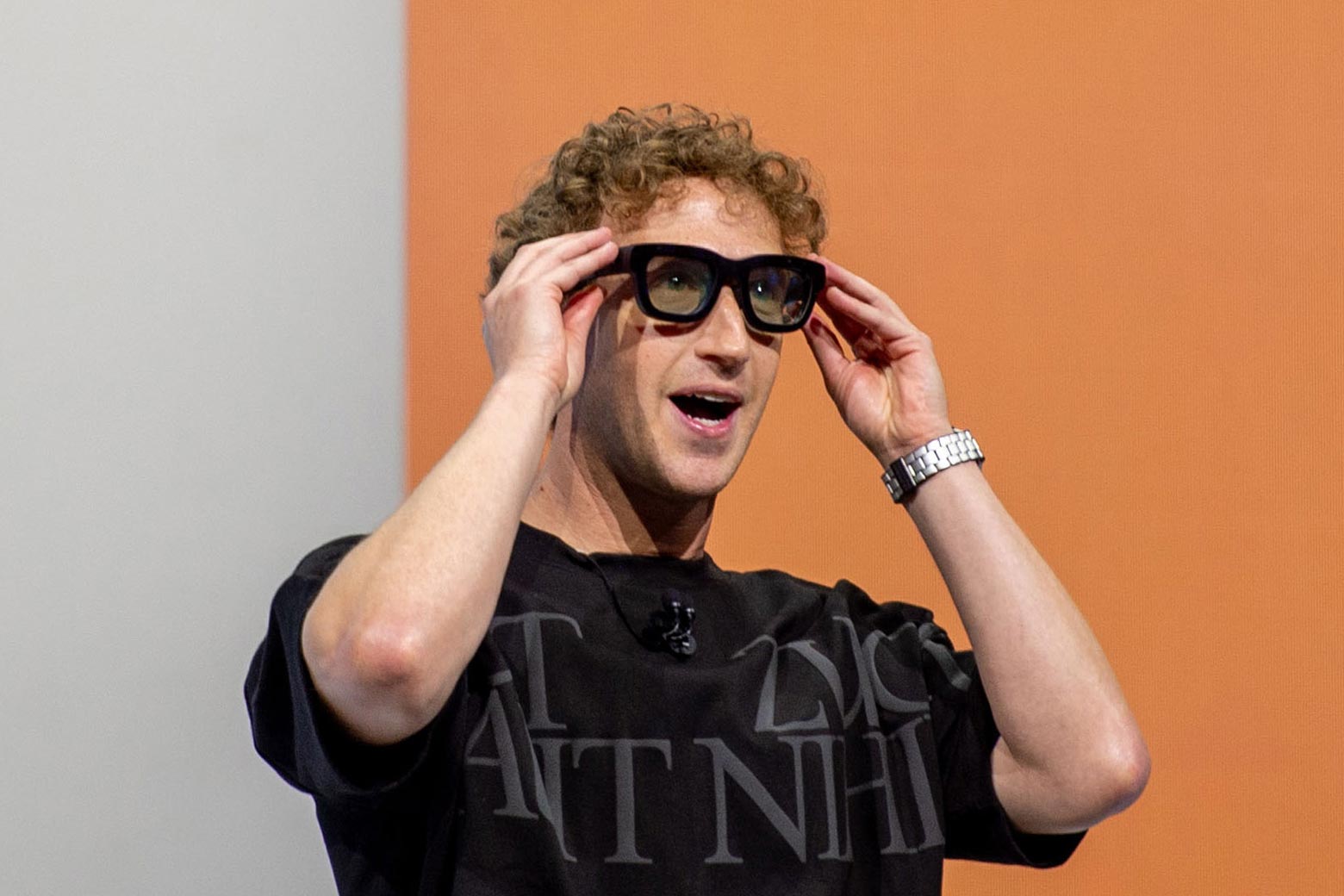
In the rapidly evolving arms race between convenience and surveillance, Elon Musk has issued a stark warning that has sent ripples through the tech and privacy communities. Reacting to recent developments surrounding Meta’s Ray-Ban smart glasses and a viral comment made by Joe Rogan, the billionaire entrepreneur voiced his concern that these AI-powered wearables could effectively weaponize individuals into walking sources of personal data for corporations, especially Meta and its CEO Mark Zuckerberg.
While the development of smart glasses has long been heralded as a step toward a seamless augmented reality lifestyle, critics are raising red flags about the unprecedented privacy risks embedded in these unobtrusive devices. Musk's brief but chilling reaction—"Wild future we're headed into here"—on X (formerly Twitter) may have been just five words, but the weight of those words encapsulates the looming fears surrounding facial recognition, AI-driven profiling, and the commercialization of human identity.

At the center of the controversy are Meta’s Ray-Ban smart glasses, which boast features like real-time photo capturing, text and voice messaging, live translation, and environment-aware AI assistance. According to Meta, the glasses are designed to help wearers "flow through their day" by leveraging Meta AI to offer suggestions based on surroundings.
Yet this selling point—contextual awareness—has morphed from a tech marvel into a surveillance concern. The idea that a seemingly innocuous accessory can process and transmit what you see, hear, and say, with the help of a large-scale AI network, has prompted an outcry from privacy advocates, lawmakers, and now from the world’s richest man.
The spark that reignited public scrutiny was lit by Joe Rogan during a recent episode of The Joe Rogan Experience. The host brought attention to an alarming real-world application of the Meta glasses when he recounted how a Harvard student allegedly incorporated facial recognition software into the glasses, creating a tool that can instantly identify strangers on the street.

"Some Harvard kid figured out how to use facial recognition software with that so he sees you, gets a photo of you, immediately gets a Wikipedia on you or whatever the f*** is available online—sees your Instagram page, finds your address, and it was wild," Rogan said.
His blunt delivery and incredulity resonated with millions of viewers. When internet personality Mario Nawfal shared the clip on X with the headline "JOE ROGAN: META GLASSES WITH FACIAL RECOGNITION ARE A NIGHTMARE," it exploded across social media. Musk’s reply was swift and ominous.
The technological backbone of this issue was laid out earlier by Harvard students AnhPhu Nguyen and Caine Ardayfio, who revealed that they built glasses capable of recognizing faces and retrieving personal information in real-time. A now-viral video showcases how their system works: simply walking past someone while wearing the glasses enables the device to snap a discreet photo, run facial recognition algorithms, and display the person’s social media profiles, phone number, and even location data on the user's phone.
:max_bytes(150000):strip_icc()/GettyImages-1459166551-ce898f4cd2e04caab74bf5e6ba108605.jpg)
With over 1.1 million views on X, the demo alarmed millions and laid bare the dark potential of merging wearable tech with AI surveillance.
The concept isn’t new—governments have long experimented with facial recognition in security and policing contexts—but what has changed is the democratization of the technology. The glasses in question are available commercially. The software isn't locked behind government clearance. The power to conduct targeted surveillance is, quite literally, in the hands of the public.
What used to be an Orwellian hypothetical has now slipped quietly into the mainstream in the form of a fashionable accessory.
Meta, for its part, has aggressively promoted the future of smart glasses. At the Meta Connect developers' conference in September, CEO Mark Zuckerberg predicted that smart glasses would eventually replace smartphones. “Everyone who has glasses is pretty quickly going to upgrade to smart glasses over the next decade,” he said.
 His vision includes a future where billions of users worldwide wear AI-powered eyewear that seamlessly connects them to the metaverse. But critics argue that such a future could also lead to a total erosion of privacy, where human beings become conduits for data collection at all times.
His vision includes a future where billions of users worldwide wear AI-powered eyewear that seamlessly connects them to the metaverse. But critics argue that such a future could also lead to a total erosion of privacy, where human beings become conduits for data collection at all times.
For Musk, whose companies like Tesla, Neuralink, and SpaceX also dabble in cutting-edge AI, the red flags are impossible to ignore. He has previously warned about the dangers of unchecked AI development and has called for government regulation of the industry.
But in the case of Meta’s smart glasses, the threat is not hypothetical—it’s wearable, market-ready, and already in consumers’ hands. His statement may have been brief, but it echoed a deeper concern: that we are sprinting into a future where personal autonomy and data privacy are sacrificed on the altar of convenience and innovation.
Indeed, this situation poses uncomfortable questions. What happens when you no longer have control over your own image?
When a stranger can access your name, job, location, or criminal record just by looking at you? What if the technology misidentifies you? What if it’s used for stalking, harassment, or corporate profiling? The potential for abuse is enormous, and regulation is struggling to keep up.

Some analysts suggest that this could lead to an AI-driven arms race in privacy countermeasures. Companies might soon offer anti-recognition accessories or digital camouflage tools to protect individuals from unauthorized identification.
Others foresee litigation against Meta or developers who push the limits of biometric data collection without consent. Governments are slowly beginning to respond. Several countries have already banned facial recognition in public spaces, while others are introducing strict consent-based data laws. But tech innovation often outpaces lawmaking, leaving users vulnerable in the interim.
Musk’s comment was more than a reaction; it was a preemptive alarm bell. With global discussions underway about the future of AI, robotics, and data ethics, the emergence of wearables like Meta glasses represents a key battleground.
Musk is not alone in his concern, but his voice carries immense weight in Silicon Valley and among global tech policy influencers. His warnings—previously dismissed by some as sci-fi paranoia—are increasingly aligning with observable reality.

Meanwhile, Zuckerberg continues to press forward with his vision of a hyper-connected world. The Meta glasses are just the beginning.
With the eventual goal of merging augmented reality, AI, and social platforms, the tech behemoth seeks to redefine not just how we see the world, but how we interact with it. What remains to be seen is whether the public will accept this transformation or rebel against it.
Will users become passive data donors or demand stronger protections?
The rise of Meta glasses and the controversy surrounding them is not just a tech story—it’s a human story. It is about what we are willing to trade in exchange for ease, what we define as acceptable in a digital society, and who ultimately holds the power when data becomes currency.
For now, as Musk succinctly put it, we are heading into a “wild future.” Whether it will be a utopia of integration or a dystopia of surveillance depends on how society reacts—before it's too late.



